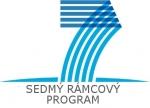PanCare Studies in Fertility and Ototoxicity to Improve Quality of Life after Cancer during Childhood, Adolescence and Young Adulthood
ACRONYM:PanCareLIFE
PROJECT NO: 602030
DURATION: 1.11.2013 - 31.10.2018
COORDINATOR:Universitaetsmedizin Der Johannes Gutenberg-Universitaet Mainz
PARTICIPANTS:
Centre Hospitalier Universitaire Saint Etienne - Chu
Stichting Vu-Vumc
Fakultni nemocnice v Motole
Fakultni nemocnice Brno – MUDr. Tomáš Kepák
Boyne Research Institute Limited
Universitaetsmedizin Der Johannes Gutenberg-Universitaet Mainz
Pintail Ltd
Academisch Medisch Centrum Bij De Universiteit Van Amsterdam
Istituto Giannina Gaslini
Kraeftens Bekaempelse
Westfaelische Wilhelms-Universitaet Muenster
Universitaetsklinikum Erlangen
Universitaet Bern
Erasmus Universitair Medisch Centrum Rotterdam
Charite - Universitaetsmedizin Berlin
ABSTRACT:
Survival rates after childhood cancer now reach nearly 80% in developed European countries as a result of more effective therapies and better supportive care, leading to a steady increase in the number of survivors in the population. However, the treatments that have improved survival are harsh and cause serious side-effects that can greatly impact survivors’ quality of life in the long term. The goal of PanCareLIFE is that survivors of cancer diagnosed before age 25 should enjoy the same quality of life and opportunities as their peers who have not had cancer. Using observational studies and molecular genetic investigations PanCareLIFE will investigate late effects that impact fertility and hearing impairment (ototoxicity), and will assess health-related quality of life. Information from PanCareLIFE’s studies will be incorporated into new guidelines for fertility preservation. As the number of survivors with late effects in any one country is small, large cohorts are required for accurate estimation of risk. PanCareLIFE has assembled a team of prominent investigators from 8 European countries who will contribute in total over 12,000 well-characterised research subjects to identify risk factors, both genetic and non-genetic, linked to decrements in fertility and ototoxicity. Quality-of-life studies will evaluate the impact of fertility and ototoxicity. PanCareLIFE will advance the state-of-the-art in survivorship studies by evaluation of large cohorts with observational and genetic tools that will provide better knowledge of individual risk factors. Survivors can then be stratified into groups benefitting from personalized, evidence-based, care; future patients may expect effective therapies to have less severe side effects, and plans for a seamless transition to long-term follow-up care can be made. These approaches will result in better quality of life for survivors of cancer diagnosed at a young age.
The Effect of Intracoronary Reinfusion of Bone Marrow-derived Mononuclear Cells(BM-MNC) on All Cause Mortality in Acute Myocardial Infarction
ACRONYM:BAMI
PROJECT NO: 278967
DURATION: 1.11.2011 - 31.10.2016
COORDINATOR: Professor Anthony Mathur, Queen Mary and Westfield College, University of London
PARTICIPANTS:
Queen Mary and Westfield College, University of London (Prof Anthony Mathur, Co-ordinator)
Assistance Publique – Hopitaux de Paris
Katholieke Universiteit Leuven
Johann Wolfgang Goethe-Universitat in Frankfurt
Institut Catala de la Salut
EURAM Limited
University College London
t2cure GmbH
Cardiovascular Research Center VZW
Medizinische Hochschule Hannover
University Hospital Brno - MUDr. Petr Kala, Ph.D.
Rigshospitalet
Universita Cattolica del Sacro Cuore
King’s College Hospital
Śląski Uniwersytet Medyczny w Katowicach
Universitaet Rostock
Cardio3 BioSciences S.A. (Dr Atta Behfar, Exploitation Manager)
Itä-Suomen yliopisto
Oslo Universitetssykehus HF
Hospital General Universitario Gregorio Maranón
The University of Exeter
ABSTRACT:
Although the long term prognosis of patients suffering acute myocardial infarction (AMI) has improved since the introduction of reperfusion therapies and primary angioplasty, the 1 year mortality of patients with AMI and resultant left ventricular systolic dysfunction (LVSD) is still as high as 13%. A major reason for the high morbidity and mortality is that the heart has an inadequate regenerative response to the myocardial necrosis sustained following AMI; cell death from the ischaemic damage can lead to progressive ventricular dilation and dysfunction through the processes of vascular remodelling. Despite the use of full conventional treatment, including ACE inhibitors, beta-blockers, aldosterone inhibitors and diuretics, yearly mortality rates of patients with post-infarction heart failure are still in the range of 13 % and rehospitalisation for worsening of heart failure occurs at a yearly rate of 6–8%. Clinical data now exists supporting the concept that autologous bone marrow derived cells can restore cardiac function following AMI. We plan to advance this research in the BAMI project and will: • Develop a standardised method of bone marrow cell collection • Develop a standardised method of optimising reparative potential of bone marrow derived cells • Standardise bone marrow preparation procedure so that it can be universally applied • Standardise method of bone marrow cell delivery post AMI • Conduct the first large scale all course mortality clinical trial to test if the product and delivery method mentioned above can lead to a 25% reduction in mortality end-point at 2 years Our project will establish the therapeutic value of this approach to stem cell therapy. Success will demonstrate that transcoronary infusion of bone marrow-derived progenitor cells is safe and will reduce the mortality rate by 25% and reduce the rehospitalisation rate by 15%.



